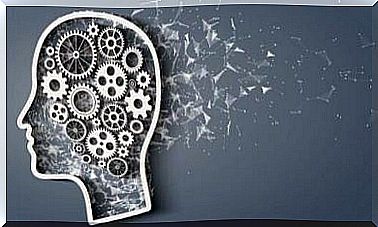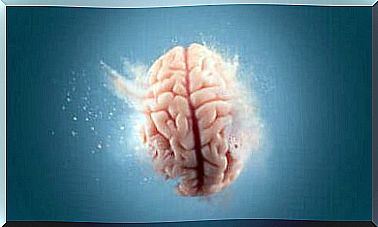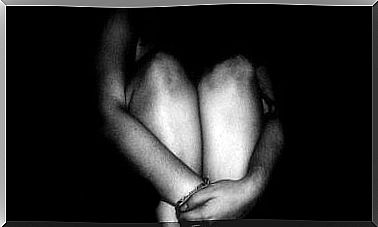Treating Depression: 11 Strategies

There is no single way to treat depression, each person is a world of their own with their own abysses, their own black holes and their own hidden fortresses. In order to find them, first of all calming despair, sleepless nights, fear and apathy, some strategies must be implemented. Because everyone is a prisoner in their own prison and we can’t all use the same key.
When we are diagnosed with depression, it means that something in us has changed. On the one hand we feel relieved to have found a medical reason for all that malaise, that lack of energy, that bad mood and that desire to cry; it is a starting point for finding help. On the other hand, a flood of doubts about the future assail us and we are led to ask ourselves “What will happen now? Am I destined to take drugs for life and follow a therapy? “
Sometimes we have a somewhat limited view of what it means to treat depression. Antidepressants aren’t the only strategy, they may not even be necessary. It will be the professional to whom we will turn to point it out. Another aspect to consider is that treating this debilitating psychological condition is like starting a journey in which to take the best path, the most suitable paths to return home, to find personal balance, to return to our lost fortress.

Strategies for treating depression
1. Collaborative attention of different professionals
There is a fact that seems to occur with increasing frequency: GPs seem to prescribe antidepressants and anxiolytics too easily. Usually this is the first solution proposed to a patient looking for help because he can’t take it anymore, because he doesn’t sleep at night, can’t relax, can’t stop crying …
To treat depression correctly and completely, you need to know other, more professional, strategies. Indeed, it is essential that doctors, psychologists and psychiatrists collaborate in harmony in a medical center. Social workers can also be of enormous help, it must not be forgotten that in recent years the section of society most affected by depression is the one that can rely on the least resources.
2. Cognitive-behavioral therapy
So far, the therapeutic strategy that has found the most success in treating depression is the cognitive-behavioral one. If coupled with a drug response, progress is likely to come soon.
This therapy focuses on the person’s style of thinking, working in an attempt to eradicate irrational ideas and fostering a progressive shift towards better control and the acquisition of more logical and realistic perspectives.

3. Interpersonal psychotherapy
As we have pointed out, there is no single strategy to treat depression, on the contrary, for each case the one that best suits the individual needs will have to be found. While cognitive-behavioral therapy may be one of the most effective, there are many other suitable ones.
Interpersonal psychotherapy, for example, is useful when depression is the result of a problem related to the patient’s interpersonal environment (such as a love breakup or the loss of a loved one). The goal of therapy is to deal with life-giving and stressful events, as well as foment her self-esteem and facilitate strategies to improve her relationships with others.
4. Emotional Focused Therapy
Greenberg’s emotion-focused therapy is a combination of Carl Rogers’ point of view and Gestalt therapy. It is very useful for treating depression as it aims to help patients identify, work and process their emotions. All carried out in a safe environment (the therapist’s task), where you can manage anxiety and work on difficult emotions.
5. The benefits of physical activity
We understand that a person with depression will barely have the strength or the desire to swim, ride a bike or go to Zumba class. This is clear. However, as far as possible, the best thing in these cases is to just get out of the house, feel the warmth of the sun, the sounds of the outside world… and walk. Just walking.
It will be enough to go out and walk for 20 minutes a day to reap the benefits.
6. Proper nutrition
Proper nutrition will not make depression go away. However, it will allow us to acquire a stronger immune system and provide the brain with adequate nutrients to help release the neurotransmitters that help us feel better every day.
Fresh fruits and vegetables, whole grains, Omega-3 fatty acids, and foods rich in magnesium are the most recommended options.
7. St. John’s wort
Several studies support the usefulness of St. John’s wort as a complementary treatment for treating mild or moderate depression. Do not hesitate, therefore, to consult a specialist to find out the doses that are right for you.
8. If no treatment works, a second diagnosis should be sought
Patients often do not show any improvement after following various pharmacological and psychological treatments. In these cases it is necessary to request a new diagnosis. The reason? Sometimes depression can conceal an as yet unidentified personality disorder.
9. The social support of loved ones
Drugs treat depression, they don’t cure it. Psychological therapies treat depression, but they also provide us with strategies for dealing with it. The psychological support of our family, trust and feeling understood and helped can heal us by allowing the rest of the strategies to act in the same direction to achieve the outcome.
Let’s surround ourselves with the people we love to emerge victorious from these situations.

10. New hobbies
Perhaps our mind is not receptive enough to encourage us to find new hobbies that require effort. However, another strategy to treat depression is precisely to introduce tasks, pastimes or dynamics into our daily life that we like, relax and arouse interest in us.
Exercises such as painting, writing, music or yoga can be extremely rewarding.
11. Mindfulness-based cognitive therapy to avoid relapses
We cannot forget that after overcoming depression, there is always the risk of a relapse. After two or three years, this monster may knock on our door again.
To prevent this from happening, we can rely on Mindfulness-Based Cognitive Therapy, which teaches us to apply breathing and meditation techniques in everyday life to combat our negative thoughts, the ones that continue to proliferate in our minds like weeds. , even if we don’t want it.
To conclude, it is good to remember once again what was mentioned at the beginning: there is no single way to treat depression. There are at least thirty, at least fifty… It is only a question of finding the mix of strategies that best suit our needs. For this purpose, we can count on the help of psychologists and psychiatrists who will show us the path towards the light.









